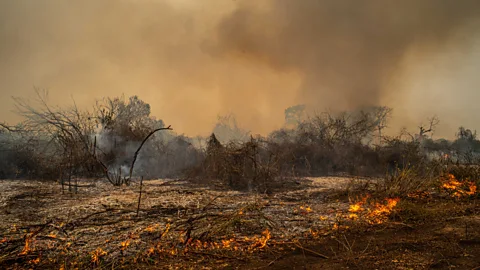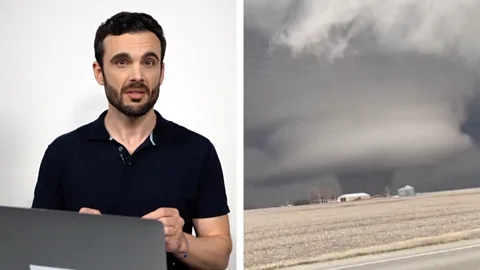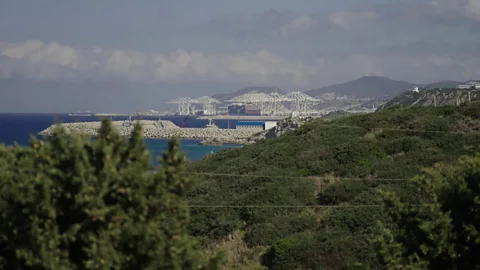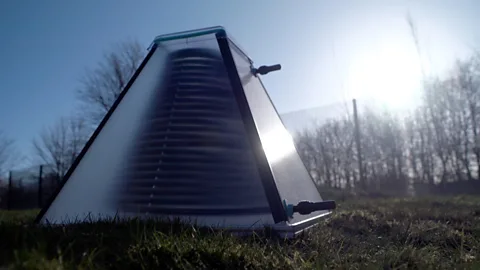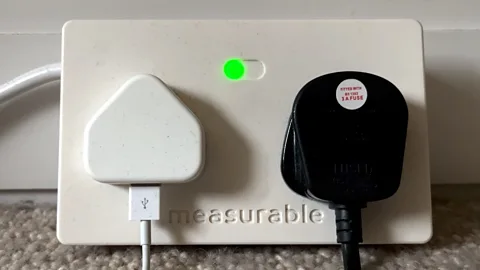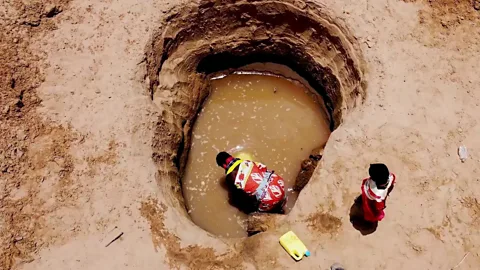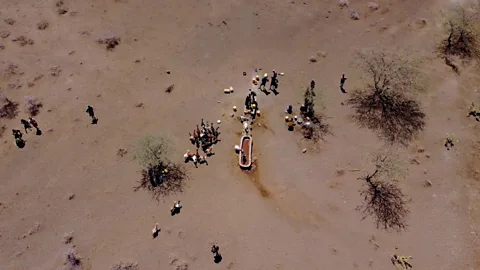Why your banking habits matter for the climate
 Javier Hirschfeld/Getty Images
Javier Hirschfeld/Getty ImagesIt might not be the most obvious way of reducing your carbon footprint, but how you save, invest and give away your money can make a difference to the climate.
What immediately comes to mind when thinking about the impact you have on the climate? Is it the flights you take? Or journeys in your car? Or perhaps the food you eat?
What about your money?
The links between your personal finances and the climate emergency are perhaps less intuitive than these other examples. The cash in your bank , pension, and personal investments may not seem to be a direct cause of greenhouse gas emissions. But the financial institutions you invest with and give your business to could be having a big impact on the environment. As a consumer with money to invest, the decisions you take about what to do with it can be surprisingly important.
For most people, banks are the places that most frequently deal with their money. But many banks are also well-documented financiers of the climate crisis.
You might also be interested in:
Between them, 35 of the world's major banks – many of them household names – have provided $2.7 trillion (£2tn) to fossil fuel companies since the Paris Agreement on climate change was adopted at the end of 2015, according to a 2020 report from Rainforest Action Network and five other non-profits. They found this fossil fuel financing had actually grown each year since the Paris agreement.
Many of these banks also offer current and savings s to ordinary customers, although this does not typically mean your money is being used for fossil fuel investments. This is because, in most countries, consumer banking arms of banks are separated from their investment arms. The money sitting in your bank is instead normally used for loans to other customers, such as mortgages, rather than investments.
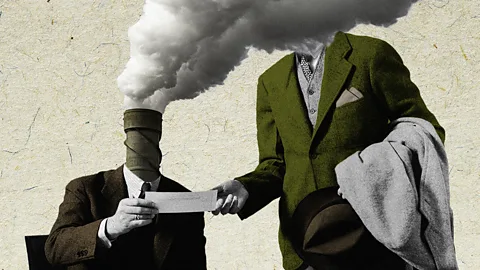 Javier Hirschfeld/Getty Images
Javier Hirschfeld/Getty Images"Retail banks are ringfenced by law from investment banking," says Alex Money, director of the Innovative Infrastructure Investment programme at the University of Oxford's Smith School of Enterprise and the Environment. "This basically means, from a bank's point of view, they can't use money that customers are giving them on deposit to then speculate or take market positions with that money."
But this does not mean that you as an individual customer are powerless to influence the investment behaviour of your chosen bank, says Louise Rouse, a capital markets campaigner and consultant to various non-profits.
"Banking institutions want to maintain retail bank divisions, that's important to them," she says. "It's also how they build brand identity, it's how they build social licence, which gives them political power and so on. So, individuals indicating that a bank's climate performance is an important factor for them in their choice of bank will have an impact."
A good place to start is to research your bank's policies.
The Rainforest Action Network report names the top funders of fossil fuels and assesses many banks' climate policies. The non-profit BankTrack, which co-authored this report, also has detailed information on many banks on its website, including lists of which banks exclude financing for Arctic oil and gas companies or for tar sands, where thick bitumen is extracted before being converted into fossil fuels and associated products.
There are a number of high-profile campaigns attempting to put pressure on banks to change their investment strategies. Over the past year, several banks have begun to make some, albeit still insufficient, moves on climate, says Rouse, with increasing customer awareness about the links between these banks and climate change "no doubt" an influencing factor.
As larger groups, customers can exert more influence over the institutions they bank with. "I would encourage a broader consumer frame, rather than just 'how is my money fuelling the problem">Why hurricane season this year will not be normal.

